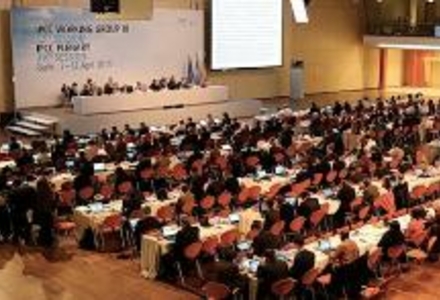The MCC, FEEM, Harvard University, and Stanford University co-organized a workshop identifying options for improving the IPCC and other future climate policy assessments.
For a quarter of a century, the Intergovernmental Panel on Climate Change (IPCC) has conducted prominent assessments of scientific research on climate change. It is timely to take a careful look at the process, to evaluate this and other institutional frameworks for carrying out such scientific assessments, and to consider options for further enhancing the effectiveness of climate-assessment processes.
Therefore, the Mercator Research Institute on Global Commons and Climate Change (MCC) on 18-20 February 2015 in Berlin hosted a workshop entitled “The Assessment and Communication of the Social Science of Climate Change: Bridging Research and Policy”. It was co-organized by MCC director Ottmar Edenhofer, Carlo Carraro from the
Fondazione Eni Enrico Mattei (FEEM), Charles Kolstad from
Stanford University, and Robert Stavins from
Harvard University.
Participants included social scientists who contributed to the IPCC’s Fifth Assessment Report, users of IPCC reports (from national governments and intergovernmental organizations), and representatives of other stakeholder groups. They were based in both developed and developing countries.
The workshop focused on assessments of options for responding to climate change with a focus on the social-sciences (economics, political science, policy studies). Discussions captured aspects of the IPCC process that have been effective, as well as those that could be improved. Questions that were discussed include: How can the IPCC enhance its interface to the social scientific communities? Which structural changes in the IPCC process could further enhance its effectiveness, its policy relevance, and its usefulness to the broader public? And what could be substantive priorities of future climate policy assessments, both within the IPCC and in processes complementing it?






